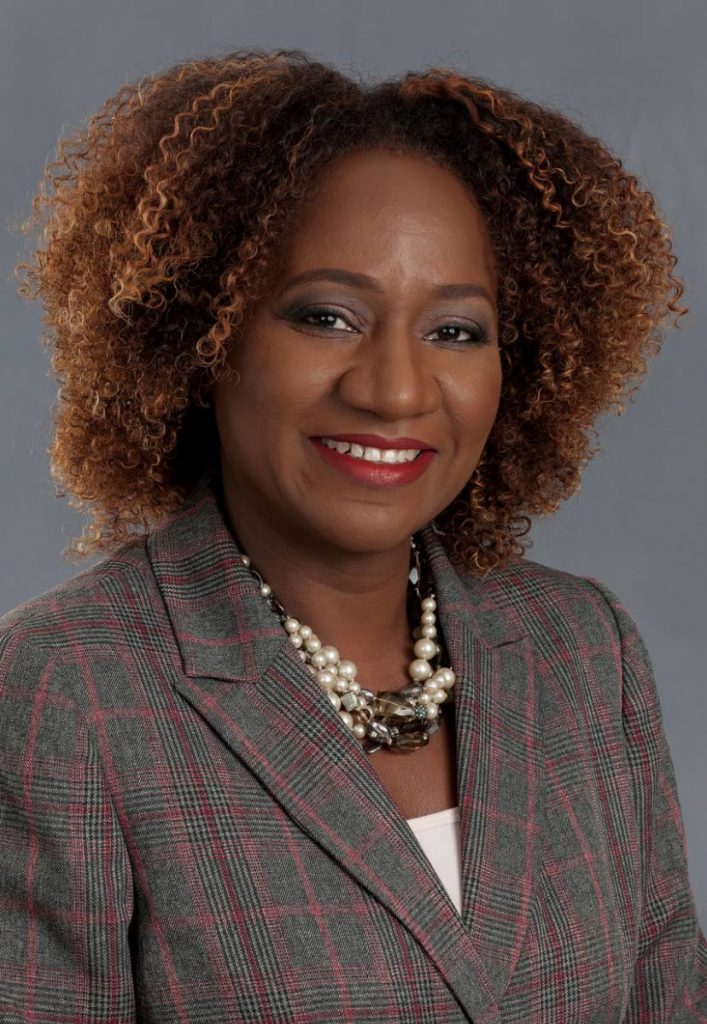Choose your words wisely when handling social justice movements

Whether corporate or individual, one’s brand is important. And as racial tension and protests against social injustice continue globally following the death of George Floyd in the US, many companies and individuals have become examples of how easily a brand can be destroyed.
The past two weeks were filled with what many called “public relations fails” and the owners of major businesses “showing their true colours.” Most of it stemmed from controversial social media posts surrounding the Black Lives Matter movement.
There were many arguments, calls for boycotts, deletion of social media posts, and apologies. Locally, some notable people involved in these incidents included Starlite Pharmacy owner Gerald Aboud, businessman Michael Aboud and Dianne Hunt, owner of Dianne’s Tea Shop.
Business Day spoke with communications specialists Nicole Duke-Westfield and Donna Ramsammy, and marketing consultant Kristofer Granger, who gave insight into ideal communications approaches during a time like this.
Know what your brand stands for
Duke-Westfield, who is also the president of the TT Public Relations Association, told Business Day the ongoing global situation has multiple layers.
“We’ve seen around the world many companies taking and expressing solidarity, expressing support. In some cases, they have clearly denounced in very clear terms what is taking place.
“I think it’s very important, as a company, to take cognisance and due consideration of how the issue impacts you, the community you are involved in, what you are seeing...There are some companies, by their very nature, they have very strong social ethics to what they do and how they do it. And so it may come almost naturally for them to speak to the case.”
Duke-Westfield said many individuals and companies were challenged and questioned after expressing support and solidarity.
“Groups and organisations have turned around and asked them, ‘Well, you say that you support the position, you say that you support the movement, say that you stand with them, but how is that reflected in your own hiring practices, your own management systems, your leadership?' It all boils down to your authenticity.”
She believes the underlying approach during such a time is empathy – not just by words but actions.
Ramsammy told Business Day while social media’s value is its time efficiency, that factor can also be a risk.
“Whoever is managing social media has to be not only trained in customer service but must be inherently customer-oriented. Businesses must also be clear on the purpose of its communications channels – including social media. That purpose should be underscored by policy so that there is never any confusion as to the purpose of any medium.”

She added that the use of social media demands that the person managing the pages be “language efficient and emotionally smart."
“As you are witnessing in the global communications spiral spiked by an increase in virtual communications, the choice of words is a critical factor to neutralising or fuelling dissatisfaction or disagreement. Someone who does not have a fairly good mastery of language should not be asked to handle corporate social media. The unfortunate effect of unplanned or reactive commentary is that once launched into cyberspace, it enters the realm of forever.”
Granger said if business owners want to avoid bad publicity, they should approach content strategically rather than whimsically.
“The strategic management of online content will keep a brand accountable and focused on its value system, thereby cultivating positive and progressive consumer relationships.”
He said the purpose of social media for brands is to create awareness, consideration, “or some type of action from consumers or stakeholders. He said this is done by creating value for the consumer through one’s content.
“Social media content, as with other forms of marketing communications, should be built upon the brand’s value system. This equips the business owner with information about what the brand stands for and what it stands against. With this information, he/she can identify a set of conversations or topics that the brand may post about."
Clear the air immediately
Ramsammy said her approach when something goes wrong is to “clear the air immediately."
“If there has been any breach of the value code, take leadership accountability, apologise immediately, promise to remedy – and take prompt action to address.
"The message should be tested by someone who is trained in communications and should ideally restate values and a commitment to the customer promise. Very often, a social media hiatus and a refocusing of its corporate social responsibility and other activities will help to rebuild trust in the brand.”
But she said brand injury can be so grave in some instances that the brand becomes no longer viable.
“That may require a brand refresh through innovation of products or services or a complete rebranding, including a name change and an appeal to a different customer base. This, fortunately, is less often the case.”
Ramsammy said progressive companies go beyond a vision or mission statement and aim to support their brands with values or a code of ethics that outlines how they do business.
"That code contains an inherent promise of specific standards and quality of service that customers or clients can expect."
Without it, she said, its market position and its relationship to its customers are automatically weakened.
Duke-Westfield said sometimes, if an individual’s response or statement is not going to be genuine, the best response may be no response.
“If I’m a company or individual that, by my actions and deeds, I’ve never positioned myself in a social sense, you cannot ascribe that personality or image to me (where) suddenly I jump on a particular issue and I say ‘I stand in solidarity.’ What is the evidence that means something?”
She said a shared mantra between communications professionals, leaders and executives is "do what you say you will do."
“If you abide by that principle and you live that commitment, then there’s authenticity."
The internet is forever
Many people have simply deleted posts after receiving backlash but provided no further comment. Asked if that's enough, Duke-Westfield said it all depends on the person or company’s reasoning. It's also very easy to screenshot posts, which may render deletion pointless.
“The fact is, you posted it, you wrote it, you expressed it. So, why are you deleting it? Are you deleting it because you got dragged on social media and the pressure was on you and you felt you had to delete it? Are you deleting because you recognised you made an error in judgement or that the view you expressed has changed? So where’s the apology?”
She said while individuals certainly have freedom of speech and are allowed to express themselves freely, within their own space, there’s another side to the story. One’s reputation, she believes, takes years to build but can be destroyed in under a minute.
“We have to respect that this is a live and raw situation right now. We have to recognise that we must be careful not to add fuel to an already burning fire and I think, too, that if you are a responsible person, you also have to ask yourself, ‘Is my message one of healing, or is it going to be the opposite? That’s why I say sometimes silence or no statement is better.”
She said there’s nothing wrong with seeking a second opinion before one decides to publicise certain views, even more so when you are someone people look up to.
“You don’t speak in a vacuum. If I make a statement today, what is the environment in which I’m speaking? How is that statement to be construed? Your customers are listening, viewing, your audience is listening, people who may not have ever done business with you (and one day might) are also watching," she said.

Granger said if a brand makes a statement that it later discovers is not an accurate representation of their value system, the statement should be removed, and replaced by another statement clarifying their position and apologising if the statement was offensive or antagonistic. "Consumers trust a brand to uphold its values. If that trust is broken, the brand has to work to regain it."
He said assessing the damage done from an antagonising post is crucial. But this depends on the company’s business model.
“A reduction in sales might be easy to spot quickly, or sometimes you need to observe it over time. With this insight, the business owner can set out a recovery plan with specific goals to fill the marketing gaps brought about by the post. In some drastic cases, the business owner may have to consider rebranding to highlight a new set of values.”
In all cases, though, recovery is possible. "Marketing is about building relationships with a community of consumers. Relationships mould and evolve over time, and people are known to forgive and move on, particularly in the face of sincerity, authenticity and empathy on the part of the brand,” he said.


Comments
"Choose your words wisely when handling social justice movements"